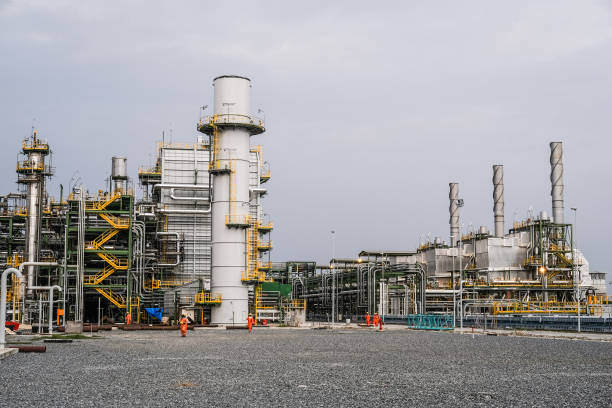Business and Brands
Dangote refinery expects first crude batch in June 2023
Dangote Refinery expects its first crude batch in June 2023. According to a report released on May 16 by S&P Global Commodity Insights, the Dangote refinery is anticipating the arrival of its first crude batch in June 2023.
A representative from the refinery revealed that they expect to commence processing this initial batch, consisting of 500,000 barrels per day (b/d), before gradually increasing production to 650,000 b/d by mid-2024. The official commissioning of the Dangote refinery by President Buhari is scheduled for May 22.
The report also highlights that a significant portion of the crude oil for the refinery will be sourced from Nigeria, a country with a production capacity of 2.5 million b/d. However, Nigeria has faced challenges in surpassing a daily output of 1.2 million b/d due to issues such as insecurity, theft, strikes, and operational problems related to aging wells.

Dangote’s impact on Nigeria’s oil market
Based on information from S&P Global Commodity Insights, the Dangote refinery is set to manufacture Euro 5 compliant gasoline, diesel, and polypropylene. The company’s data indicates that motor gasoline (petrol) production is projected to rise from nearly zero currently to 249,000 barrels per day (b/d) in 2026 and exceed 300,000 b/d by 2033. Additionally, the report states that petrol imports will decrease by over half to 154,000 b/d by 2026.
Furthermore, with Nigeria’s expected rapid population growth in the coming decades, the data suggests that imports will once again surpass domestic production by 2042. Notably, starting from the following year, Nigeria will begin exporting gasoil for the first time, with production anticipated to increase from 3,500 b/d in 2023 to 211,000 b/d in 2027.
Forecast on Nigeria’s crude production
According to S&P analysts, Nigeria’s crude production is expected to maintain stability at approximately 1.3 million b/d over the next ten years. However, the start-up of the Dangote refinery is anticipated to have a significant impact on oil exports. The forecast indicates that in 2023, Nigeria is projected to produce 1.46 million b/d and export 1.45 million b/d. However, by 2027, despite a slight decline in production to 1.30 million b/d, oil exports are forecasted to drop to 656,000 b/d. This decline in exports can be attributed to the operational influence of the Dangote refinery.
What you should know
In a recent report by Nairametrics, the Dangote refinery is anticipated to play a significant role in driving economic growth in Nigeria by fulfilling the entire domestic demand for various liquid products. This includes essential commodities like gasoline, diesel, polypropylene, kerosene, and aviation jet fuel.
- In a recent interview with the Economist, Aliko Dangote emphasized the refinery’s contribution to stimulating the development of additional industries. Dangote highlighted that the production of crucial products such as naphtha and polypropylene by the refinery would serve as a catalyst for the growth of industries such as cosmetics, plastics, and textiles.
- This suggests that the refinery’s operations would have a positive ripple effect on the Nigerian economy, fostering the expansion of diverse sectors.


 Top Stories14 hours ago
Top Stories14 hours agoTinubu Deliberately Put Northerners In Key Places – Ribadu

 Entertainment2 hours ago
Entertainment2 hours agoGuinness World Record: Davido, Sowore Turn Up To Support Chess Master, Onakoya

 News13 hours ago
News13 hours agoBlack Market Dollar (USD) To Naira (NGN) Exchange Rate Today 19th April 2024

 Top Stories2 hours ago
Top Stories2 hours agoCourt Discharges, Acquits Ex-AGF Adoke Of Money Laundering

 Politics14 hours ago
Politics14 hours agoIsraeli Missiles Hit Iran, Iraq And Syria

 Entertainment14 hours ago
Entertainment14 hours agoNollywood Eniola Ajao’s movie ‘Ajakaju’ rakes over N200 million in cinemas

 Top Stories14 hours ago
Top Stories14 hours agoResolutions of PDP NEC meeting emerges [FULL TEXT]

 Business and Brands2 hours ago
Business and Brands2 hours agoUBA America Strengthens Commercial Diplomacy, Hosts Diplomats, Business Leaders at World Bank Summit in Washington.





